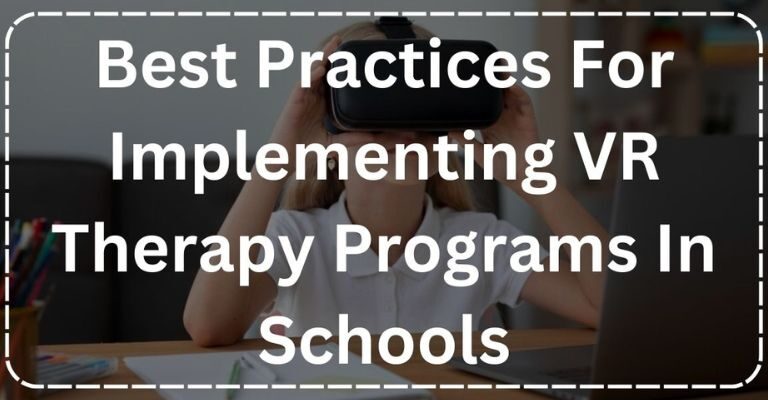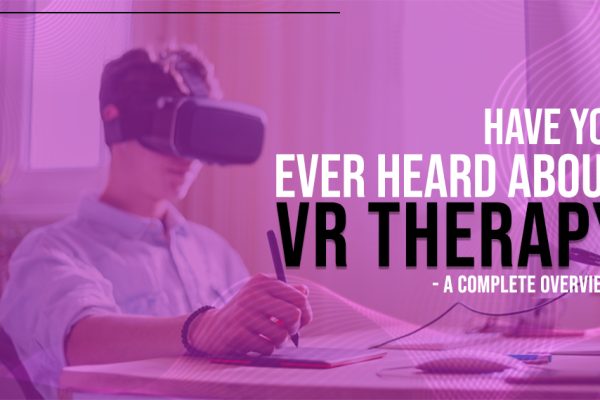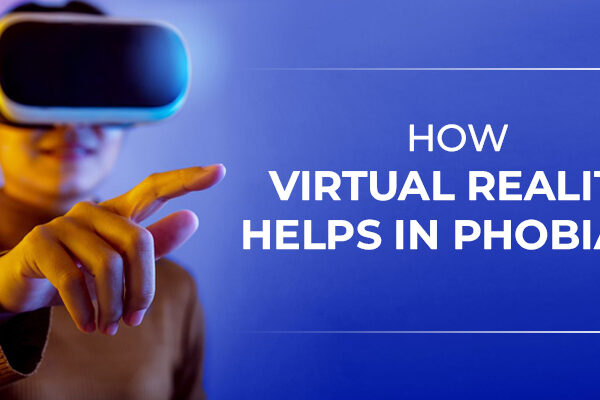Virtual Reality (VR), one of the advanced technological developments, has revolutionized education and therapies. One of the best applications of VR therapy is its implementation in schools where students benefit from their advanced solutions, supporting students’ well-being. Implementing such programs requires careful planning and best practices to ensure their effectiveness and ethical use.
Understanding The Unique Needs Of Students:
Before implementing VR therapy programs, conducting a thorough assessment of the unique needs of students in each school is crucial. Consider factors such as age, grade level, and specific challenges the student population faces. Tailoring VR experiences to address these needs will enhance the relevance and impact of the therapy.
Collaboration With Mental Health Professionals:
It is ideal for educators to collaborate with mental health experts to design effective VR therapy programs for students. Therapists, psychologists, and counselors assist you by offering invaluable knowledge on the various aspects of child memory development and many more that perfectly align with the standards and goals.
Customization & Diversity Of VR Content:
A diverse range of VR content is essential to address various mental health concerns. From stress and anxiety to attention disorders, VR therapy programs should offer customizable experiences that cater to different needs. This inclusivity ensures that students receive personalized interventions that resonate with their challenges.
Training For Educators:
Equipping educators with the necessary skills and knowledge to facilitate VR therapy sessions is crucial. Professional development programs should be implemented to train teachers on using VR technology, understanding the therapeutic objectives, and managing potential challenges that may arise during sessions. This training fosters a supportive and informed environment for both educators and students.
Ethical Considerations & Informed Consent:
Maintaining ethical standards is paramount when implementing VR therapy programs in schools. Prioritize obtaining informed consent from both students and their parents or guardians. Communicate the goals, benefits, and potential risks associated with the VR therapy, ensuring transparency in the entire process.
Monitoring & Assessment:
Regular monitoring and assessment are essential to a successful VR therapy program, especially those enhanced with cognitive behavioral therapy modules. Establish protocols to track students’ progress, gather feedback, and make necessary adjustments to the program. This iterative approach ensures that the therapy remains effective and responsive to the evolving needs of the students.
Integration With Existing Support Services:
VR therapy programs should complement, not replace, existing support services within the school. Collaborate with counselors, special education professionals, and other support staff to integrate VR therapy seamlessly into the broader student support framework. This holistic approach enhances the overall effectiveness of mental health initiatives within the school.
Implementing VR therapy programs in schools holds immense promise for addressing the mental health needs of students. By following these best practices, educators and mental health professionals can create a supportive and ethical environment that maximizes the potential benefits of VR therapy. Enroll now at Sugsar Edutech, specializing in core brain training methods, cognitive skill development, and other concentration activities for students to foster the next generation’s well-being.



